Hyundai i30 Wagon vs Tesla Model 3 – Differences & prices compared
Compare performance, boot space, consumption and price in one view.
Find out now: which car is the better choice for you – Hyundai i30 Wagon or Tesla Model 3?
The Hyundai i30 Wagon (Estate) comes with a Petrol or Petrol MHEV engine and Manuel or Automatic transmission. In comparison, the Tesla Model 3 (Hatchback) features a Electric engine with Automatic transmission.
When it comes to boot capacity, the Hyundai i30 Wagon offers 602 L, while the Tesla Model 3 provides 594 L – depending on how much space you need. If you’re looking for more power, decide whether the 140 HP of the Hyundai i30 Wagon or the 627 HP of the Tesla Model 3 suits your needs better.
In terms of consumption, the values are 5.70 L per 100 km for the Hyundai i30 Wagon, and 13.20 kWh for the Tesla Model 3.
Price-wise, the Hyundai i30 Wagon starts at 24800 £, while the Tesla Model 3 is available from 34300 £. Compare all the details and find out which model fits your lifestyle best!
Hyundai i30 Wagon
The Hyundai i30 Wagon offers a blend of practicality and style, making it a popular choice for families and those in need of extra space. Its sleek exterior and comfortable interior provide a pleasant driving experience, while advanced safety features ensure peace of mind on the road. The i30 Wagon stands out with its impressive fuel efficiency and reliability, catering to both urban and rural lifestyles.
details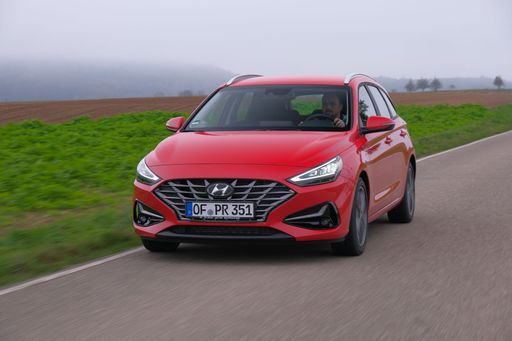 @ hyundai.news
@ hyundai.news
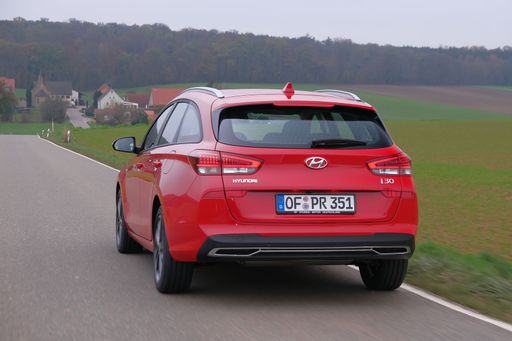 @ hyundai.news
@ hyundai.news
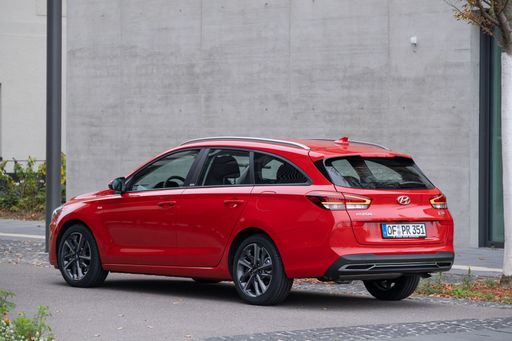 @ hyundai.news
@ hyundai.news
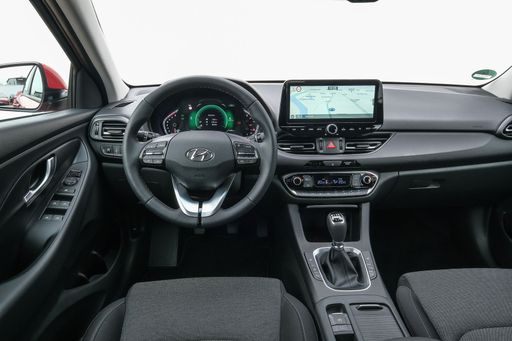 @ hyundai.news
@ hyundai.news
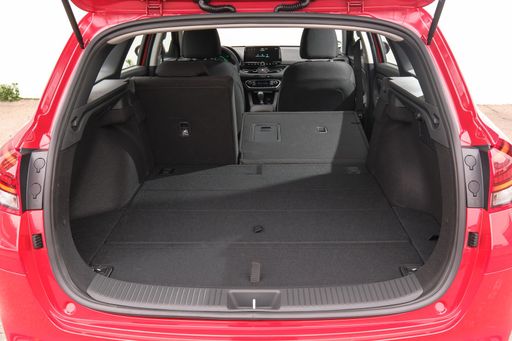 @ hyundai.news
@ hyundai.news
Tesla Model 3
The Tesla Model 3 stands out in the electric vehicle market with its sleek design and impressive performance capabilities. It offers a seamless driving experience that combines advanced technology with minimalistic interiors, creating a futuristic feel on the road. Additionally, its range and charging infrastructure make it a practical choice for both city commuting and longer journeys.
details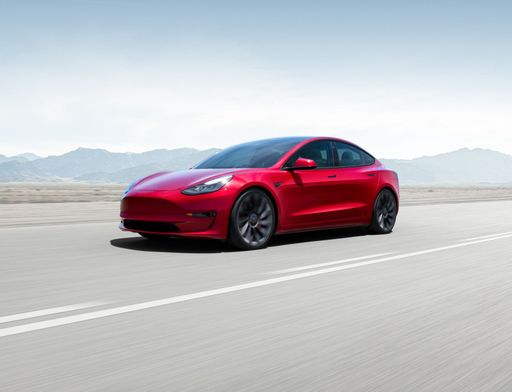 @ tesla.com
@ tesla.com
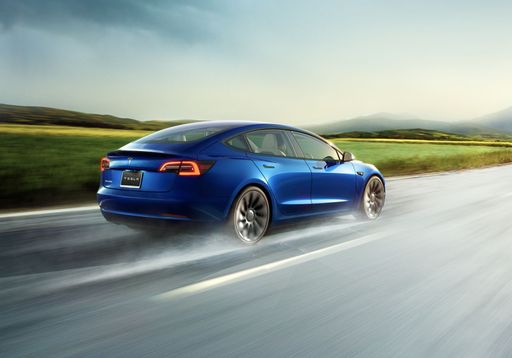 @ tesla.com
@ tesla.com
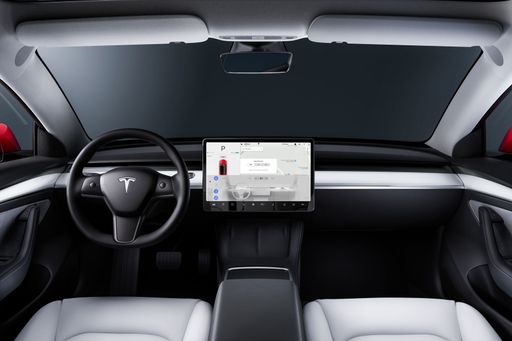 @ tesla.com
@ tesla.com
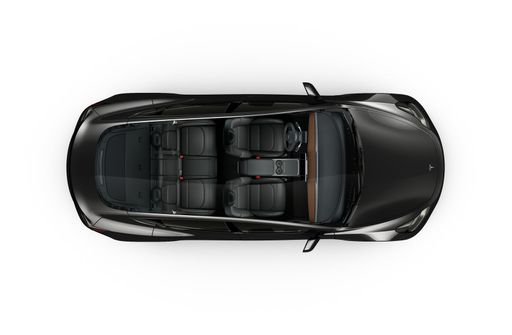 @ tesla.com
@ tesla.com

|

|
|
|
|
Costs and Consumption |
|
|---|---|
|
Price
24800 - 30100 £
|
Price
34300 - 50100 £
|
|
Consumption L/100km
5.7 - 6 L
|
Consumption L/100km
-
|
|
Consumption kWh/100km
-
|
Consumption kWh/100km
13.2 - 16.7 kWh
|
|
Electric Range
-
|
Electric Range
513 - 702 km
|
|
Battery Capacity
-
|
Battery Capacity
62 - 79 kWh
|
|
co2
130 - 136 g/km
|
co2
0 g/km
|
|
Fuel tank capacity
50 L
|
Fuel tank capacity
-
|
Dimensions and Body |
|
|---|---|
|
Body Type
Estate
|
Body Type
Hatchback
|
|
Seats
5
|
Seats
5
|
|
Doors
5
|
Doors
5
|
|
Curb weight
1316 - 1461 kg
|
Curb weight
1822 - 1929 kg
|
|
Trunk capacity
602 L
|
Trunk capacity
594 L
|
|
Length
4585 mm
|
Length
4720 - 4724 mm
|
|
Width
1795 mm
|
Width
1850 mm
|
|
Height
1475 mm
|
Height
1431 - 1440 mm
|
|
Payload
439 - 524 kg
|
Payload
303 - 333 kg
|
Engine and Performance |
|
|---|---|
|
Engine Type
Petrol, Petrol MHEV
|
Engine Type
Electric
|
|
Transmission
Manuel, Automatic
|
Transmission
Automatic
|
|
Transmission Detail
Manual Gearbox, Dual-Clutch Automatic
|
Transmission Detail
-
|
|
Drive Type
Front-Wheel Drive
|
Drive Type
Rear-Wheel Drive, All-Wheel Drive
|
|
Power HP
100 - 140 HP
|
Power HP
283 - 627 HP
|
|
Acceleration 0-100km/h
9.8 - 13.3 s
|
Acceleration 0-100km/h
3.1 - 6.1 s
|
|
Max Speed
178 - 197 km/h
|
Max Speed
201 - 262 km/h
|
|
Torque
172 - 253 Nm
|
Torque
420 - 660 Nm
|
|
Number of Cylinders
3 - 4
|
Number of Cylinders
-
|
|
Power kW
74 - 103 kW
|
Power kW
208 - 461 kW
|
|
Engine capacity
998 - 1482 cm3
|
Engine capacity
-
|
General |
|
|---|---|
|
Model Year
2024
|
Model Year
2023 - 2024
|
|
CO2 Efficiency Class
D, E
|
CO2 Efficiency Class
A
|
|
Brand
Hyundai
|
Brand
Tesla
|
Hyundai i30 Wagon
Introducing the Hyundai i30 Wagon: A Perfect Blend of Performance and Practicality
The Hyundai i30 Kombi is a testament to the automaker's commitment to delivering high-quality vehicles that cater to a wide range of drivers. This versatile estate car combines sleek style, innovative technology, and efficient performance, making it an attractive option for those seeking a reliable family car or a spacious vehicle for everyday use.
Powerful Yet Efficient: Engine Options
The Hyundai i30 Wagon offers a selection of engine configurations, designed to balance power and efficiency seamlessly. You can choose from conventional petrol engines or the advanced 48V mild-hybrid technology for those looking to minimise their carbon footprint while enjoying an exhilarating drive.
The petrol engines provide a dynamic driving experience, while the mild-hybrid options incorporate a small electric motor to boost efficiency. Both engine types promise smooth, responsive performance, ensuring every drive is a pleasure.
Seamless Transmission Systems
With the i30 Wagon, Hyundai offers both manual and automatic transmission systems to cater to different driving preferences. The manual transmission provides direct control for enthusiasts who enjoy a more hands-on driving experience, while the automatic option is perfect for those prioritising convenience and comfort during their journeys.
Innovative Technology and Features
The interior of the Hyundai i30 Wagon is designed to offer maximum comfort and connectivity. Equipped with the latest infotainment system, drivers and passengers can enjoy access to a wide array of features, ensuring entertainment and connectivity on the go. The system is compatible with Apple CarPlay and Android Auto, providing seamless integration with your smartphone.
Safety technology is also at the forefront, with multiple driver-assistance features that enhance road safety, making the i30 Wagon a smart choice for families and safety-conscious drivers.
Spacious and Versatile Interior
Inside, the i30 Wagon boasts an impressive amount of space, with a boot capacity of 602 litres, easily accommodating the demands of a busy lifestyle. With comfortable seating for up to five passengers and flexible load space, it's perfect for long trips or daily commutes. Practicality is matched with attention to detail in design, making the interior both stylish and functional.
Pricing and Sustainability
The Hyundai i30 Wagon not only provides excellent value for money but also demonstrates a commitment to sustainability. With competitive pricing and efficient fuel consumption, it's an economical choice that doesn’t compromise on performance or quality. CO2 emissions are kept in check, making it an environmentally friendly option within this segment.
Conclusion: The Perfect Automotive Companion
The Hyundai i30 Wagon is an exceptional vehicle that strikes an ideal balance between innovation, style, and practicality. Whether you're navigating city streets or embarking on a countryside adventure, this car provides the reliability, comfort, and performance you require. It's more than just an estate car; it's your perfect automotive companion.
Tesla Model 3
Introduction to the Tesla Model 3
The Tesla Model 3 has quickly become a beacon of innovation in the world of electric vehicles (EVs), embodying a perfect blend of performance, technology, and sustainability. Known for redefining the electric car experience, the Model 3 stands as a testament to Tesla's commitment to pushing the boundaries of automotive design and engineering.
Design and Build
With its sleek fastback silhouette, the Tesla Model 3 is not only visually captivating but also aerodynamically efficient. Measuring at 4720 mm in length, 1850 mm in width, and 1441 mm in height, it optimally combines aesthetics with functionality. The Model 3 boasts a 594-litre boot space, offering ample room for everyday storage needs. Built with environmental efficiency in mind, its CO2 efficiency rating stands proudly at a perfect A, making it an ideal choice for the eco-conscious driver.
Powertrain and Performance
Under the bonnet, the Model 3 offers a diverse range of powertrains. It is available in both rear-wheel drive (RWD) and all-wheel drive (AWD) options, catering to different driving preferences. The electric motors deliver a remarkable power output ranging from 283 to 460 PS, translating to 208 to 338 kW. Depending on the variant, the Model 3 can accelerate from 0 to 100 km/h in a staggering 3.1 to 6.1 seconds. With a top speed between 201 and 262 km/h, the Model 3 promises an exhilarating driving experience.
Battery and Range
The Model 3 is equipped with a robust battery pack, available in capacities ranging from 62 to 79 kWh. This ensures an impressive electric range of 513 to 629 km on a single charge, catering perfectly to both city drivers and those who frequently embark on long-distance journeys. The energy consumption is between 13.2 to 16.5 kWh per 100 km, showcasing Tesla's efficiency in engineering cutting-edge EV technology.
Technological Innovations
The interior of the Model 3 is where technology takes centre stage. With its state-of-the-art autopilot feature, semi-autonomous driving is not just a promise but a reality. The vehicle continually updates over-the-air, ensuring that the software is always up-to-date with the latest features and improvements. Furthermore, the minimalist interior design, accentuated by a massive central touchscreen display, epitomises modernity and enhances the user experience with intuitive controls and navigation.
Cost Considerations
Given its advanced features and performance capabilities, the Model 3's price point ranges from €42,490 to €58,490. Monthly operating costs are estimated to be between €1,073 and €1,397, with per-kilometre costs between 42.9 and 55.9 cents, making it a competitively priced option within the premium EV market segment.
Conclusion
The Tesla Model 3 continues to lead the charge in the electric revolution, offering a compelling package of performance, innovation, and sustainability. For anyone seeking a modern, efficient, and technologically advanced vehicle, the Model 3 deserves serious consideration. With Tesla's groundbreaking vision and innovative engineering, this vehicle is not merely an investment in cutting-edge technology but also in a sustainable future.
The prices and data displayed are estimates based on German list prices and may vary by country. This information is not legally binding.
